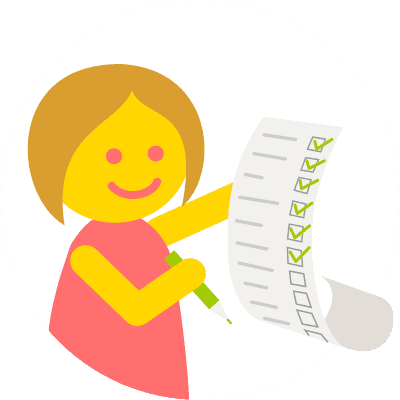Do Babysitters & Nannies Need Insurance? (Guide for Caregivers)


Written & Illustrated by
Matthew James Taylor
Kidsit Founder, General Manager
Key Takeaways
- Insurance isn’t usually required for occasional babysitters: Most parents’ home, medical, or umbrella policies cover the majority of incidents for casual babysitting.
- For regular or professional babysitting, insurance can be a smart investment: It helps protect you from risks like injury claims, property damage, or false accusations.
- Always check the family’s insurance coverage: Ask whether their homeowners or liability insurance covers a babysitter working in their home.
- Nanny vs. babysitter roles can affect insurance needs: Nannies who work long-term may be classified as employees, shifting more liability and coverage responsibility to the employer.
- When running a childcare business or daycare, full liability insurance is essential: Business insurance is required to cover incidents that typical homeowner policies won’t.
Starting out as a babysitter or nanny is basically like starting your own business. But exactly how “businesslike” is this business? How far do you have to go to set it up? What are the legal requirements?
Does a babysitter need insurance? A babysitter that is working occasionally for a family in their home is not required to have any kind of insurance, although it still might not be a bad idea. This is very different from a child care center (including ones run in the child care provider’s home), which definitely should have liability insurance.
That’s the simple answer. In the rest of this post, I’ll explain why a babysitter might choose to get insurance, what insurance the parents should have (including insurance considerations for hiring a full-time childcare professional), and what insurance requirements there are for a child care center.
Insurance for Babysitters
It would be pretty rare for a teenager that’s babysitting while the parents are out on a date to have any kind of insurance. If anything, the parent’s home, medical, and umbrella insurance would cover the large majority of problems that could come up.
However, especially for adult babysitters that work quite a bit, babysitter insurance might make sense.
Here are some situations where babysitter insurance would be really good to have:
- You take the kids to the park, and a kid gets hurt and the parents sue you for negligence, and you need to pay the medical bills.
- While at the mall, someone kidnaps a kid on your watch and the parents blame you and take legal action.
- You’re wrongly accused of sexual abuse and are facing legal fees to defend yourself.
If the parents don’t have their own coverage and they’re not treating you as an employee (withholding money for taxes and paying worker’s compensation fees), then you might want to look into what it would take to get your own coverage.
Those are just some examples of where things might go really, really wrong. Realistically, these aren’t common occurrences by any means. But if you’re working frequently as a babysitter, you might want to look into what the cost of some basic insurance would be.
Kidsit babysitting statistics
Only 8.37% of babysitters have liability insurance.
If you're working regularly as a babysitter or nanny, then it makes sense to get insured — this extra qualification may help you to secure more lucrative jobs!
Parents love the peace of mind that an insured babysitter can provide.
(Babysitting statistics calculated weekly from our live member data — Updated 16 Feb 2026)
Nannies
Whether or not a nanny should look into getting insurance is largely dependent on whether she’s considered an employee or an independent contractor.
As an employee, your employer is responsible for you, and they’ll be paying worker’s compensation fees for problems that might come up. As an independent contractor, you’re generally responsible for your own work.
If you’re working as a nanny, providing frequent and regular care to children, then you’re generally, legally considered an employee as opposed to an independent contractor. This means that the parents are under legal obligations for the nanny’s work as opposed to the nanny.
Here’s why a nanny is an employee instead of an independent contractor:
- The parents have control over the schedule, not the nanny.
- The duties to be performed are dictated by the parents.
- It’s the parents responsibility to find a backup if the nanny isn’t able to come to work.
- The nanny is economically dependent on the job; losing the job means that they have to find another one.
There are really rare cases where the nanny would be considered an independent contractor:
- If the nanny determines her own schedule, which can be changed to suit her needs.
- The nanny has procedures regarding how she does her work and the parents must agree to them.
- The nanny has a network of contacts to fill in if she can’t do the work.
- The nanny is not financially dependent on the job; there are other clients that contribute to earnings.
- The nanny works under a business name and gives the parents invoices.
The reason that nannies are very rarely independent contractors is that it’s easy to qualify someone as an employee, but you need to strongly prove that someone is an independent contractor. The IRS is very strict that way.
Honestly, if you take a complete look at risk vs reward from the parent’s standpoint, it’s best to err on the side of declaring a nanny an employee instead of an independent contractor. This means withholding pay to cover taxes, worker’s compensation coverage, etc. There are just far fewer ways for this to go sideways if problems come up.
33.33% of babysitters also offer nanny services.
Insurance for the Family
Really, it’s the family’s insurance that will cover incidents. If the family is used to working through a service, they might think that the childcare insurance they’re used to is needed. Here’s how you can point them in the right direction in case questions come up.
Home insurance should cover anything that could go wrong on the family’s property. For example, a fire in the kitchen, a massive water leak that floods your basement, etc., even while you’re the one watching the kids.
Medical insurance should cover the family in case there’s an injury, for example, a kid falls down the stairs and breaks a leg or cracks his skull open in a Buzz-Lightyear-style attempt to soar over furniture.
If you’re going to use the family car, automotive insurance should also cover anyone using the vehicle with a valid license, not just the owner of the vehicle. Otherwise, the family might not get reimbursed if there’s a car accident while you’re in the driver’s seat. Tell them to check their Uninsured and Underinsured Motorist limits to see what they’re covered for. They need to have the correct kind of insurance to be covered when other people are using their car.
It’s actually a good idea to check what kind of insurance the family has on the car before you drive it. Make sure that you won’t be left high and dry if someone rear ends you and runs off before you can get their plate.
Umbrella insurance is also really worthwhile to look into. This can cover them for things like accidents at the playground and off their personal property. This could also cover you if there are other children in the home that get injured on your watch. For example, some of the kid’s friends come over, one breaks an arm, friend’s parents want to sue to cover medical costs, etc.
Working Through a Service
One advantage of working through a nanny or babysitting service is that they might have their own insurance to cover anything that could go wrong on your watch. This could make the generally higher cost (to the family) of using a service worthwhile. It eliminates the need for all these extra concerns and simplifies the entire process of hiring and finding work.
The nice thing about these nannying services that offer coverage is that they look out for everyone involved; the parents and you as the childcare provider.
Child Care Centers
If you’re running child care services out of your own home or in a facility, then you’re totally on your own. Being fully insured is a really, really good idea, even if it’s not mandatory in your state.
Without liability insurance, you’re on the hook for anything that could go wrong. Your home insurance won’t cover you for things that are caused by your business. If a kid gets hurt and needs medical attention, you’ll probably get sued. Without insurance, you’re the one paying out of pocket.
Read our essential guide: How to babysit from home to learn more about the insurance requirements as they apply to you.
Related Questions
Does a babysitter need to pay taxes?
Money earned from babysitting is taxable. While the minimum taxable earnings change from year to year, generally any self-employment income under $400 doesn’t need to be claimed. If you’re a dependent child, your self-employed income doesn’t have to be claimed until it exceeds $1000. Make sure that you consult with an accountant.
See our guide on babysitting tax: Do babysitters pay taxes? for more detailed information.
Does a babysitter need to be licensed?
The requirements for training and licensing will vary by location. Generally speaking, in the US, you don’t need any kind of license. However, in some states, you might need some kind of business license to do any kind of self-employed work, including babysitting.
For a complete explanation of possible requirements and required qualifications to babysit, see our articles: Babysitting licences, and Can you babysit without qualifications.
Also, check out our complete list of babysitting qualifications to learn what other certification is available.





























